Islamic Scholar Diagnosed With Heart Disease In Evin Prison, Loses Sight
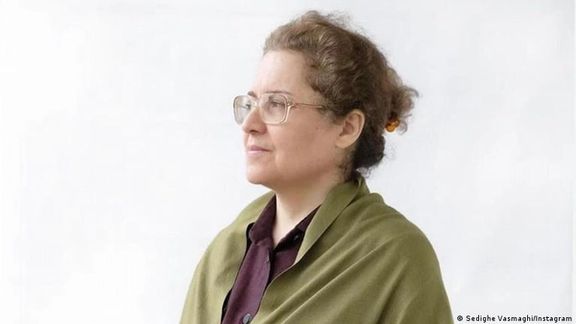
Imprisoned Islamic scholar Sedigheh Vasmaghi has contracted heart disease in notorious Evin Prison and has lost her sight, leaving her dependent on inmates' support.

Imprisoned Islamic scholar Sedigheh Vasmaghi has contracted heart disease in notorious Evin Prison and has lost her sight, leaving her dependent on inmates' support.
Her husband announced the news on Thursday about the high profile prisoner, a staunch critic of Supreme Leader Ali Khamenei and his compulsory hijab policy.
“She had not had any heart problems prior to her arrest. I hope it is not a serious illness and is only caused by the pressure of the prison,” said Mohammad Ebrahimzadeh.
According to him, Vasmaghi went to the clinic of Evin Prison one month ago with symptoms such as chest pain but the authorities at first refused to send her to hospital, giving her only “medicines at hand.”
“They were finally convinced that her problem was serious and sent her to Taleghani Hospital, where she was kept in the ICU only for one night,” Ebrahimzadeh went on to say. Vasmaghi is just one in a long line of sick prisoners not given sufficient, if any, access to medical care while incarcerated.
He also revealed that she has now completely lost her vision due to a long-running genetic condition and is dependent upon other inmates to perform even basic everyday tasks.
Mahmaoud Alizadeh Tabatabaei, Vasmaghi’s lawyer, told Rouydad24 news website that a forensic doctor's report has been sent to the prosecutor urging her immediate release from prison due to her health conditions.
Security forces arrested Vasmaghi on March 16 and subsequently transferred her to Evin Prison. The arrest came after the scholar described Khamenei as a dictator, slamming the compulsory hijab laws which have been at the heart of the 2022 Women, Life, Freedom movement, triggered by the death in morality-police custody of Mahsa Amini.
In a statement issued earlier this month, 320 Iranian political and civil activists urged her release, saying the scholar “has shown over the past four decades her care and concern for both Iran and Islam.”
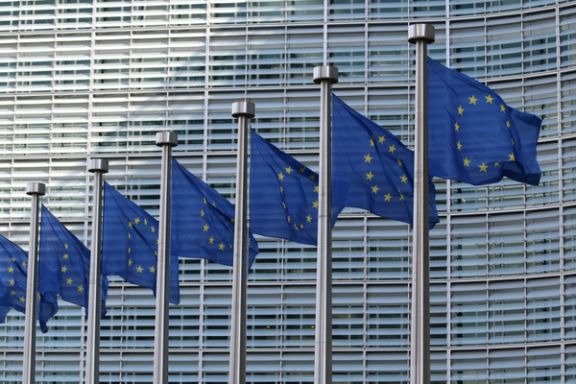
In a resolution adopted Thursday in response to Iran’s recent aerial attack on Israel, the European Parliament urged the EU to hand more sanctions to Tehran and designate the IRGC a terrorist organization.
“The resolution also reiterates Parliament’s long-standing call to include Iran’s Islamic Revolutionary Guard Corps on the EU list of terrorist organisations, stressing that such a decision is long overdue due to malign Iranian activities. It similarly calls on the Council and EU Foreign Policy Chief Josep Borrell to add Hezbollah in its entirety to the same list.,” wrote the European Parliament statement.
Hezbollah in Lebanon is Iran's largest and wealthiest proxy and is currently waging war on Israel's northern front. Since October 7 when Iran-backed Hamas in Gaza invaded Israel, over 3,200 projectiles have been fired into Israeli territory from Lebanon and this week, the Israeli military announced over half the terror group's commanders in south Lebanon have been eliminated.
The latest resolution passed by 357 votes in favor, 20 against and 58 abstentions and comes just days after sanctions were levied against Tehran by the EU for Iran's aerial bombardment of Israel.
The adoption of the latest resolution came a day after heated arguments in the parliament where Borrell was severely taken to task by the representatives for his failure to designate the IRGC as a terrorist organization. Arguing that the bloc has already listed Tehran’s paramilitary force under the “Iran Weapons of Mass Destruction” sanctions’ regime, Borrell said that “listing this organization as a ‘terrorist organization’ would have no practical effect.”
In response to Borrell’s argument that the legal grounds for the listing have not been met, Charlie Weimers, a Swedish representative, called the EU chief “a liar.”
“That is nonsense. Here, I have the council's secret legal opinion. Nowhere in this document does it say that it has to be an authority in the EU… You know that. You knew the truth. You shamelessly lied to protect the IRGC. We won't miss you, Mr. Borrell, but I'm sure the mullahs will,” Weimers stated.
During the session, the European Parliament strongly condemned Iran’s unprecedented attack on Israeli territory, vowing full support for the security of Israel and its citizens against the threats of the Iranian government and its proxies.
On April 13, Iran launched its first ever direct offensive against Israeli territory with more than 350 drones and cruise and ballistic missiles, 99% of which were intercepted by Israel and a US-led coalition, according to the Israeli army.
For months after the start of the Gaza war on October 7, the Iranian government avoided direct involvement in the conflict. Until this month, it had used its proxies to target Israeli and American targets in the region, punishing America for supporting Israel's right to defend itself after the most deadly day for Jews since the Holocaust. Over 1,200 mostly civilians were killed and over 250 taken hostage.
The European Parliament welcomed the EU’s recent decision to impose further sanctions against Tehran, especially those targeting Iran’s production and supply of drones to Russia and the wider Middle East. The resolution demanded that the EU’s new regime of sanctions be urgently enforced.
Since mid-2022, Iran has supplied a substantial number of kamikaze Unmanned Aerial Vehicles (UAVs) to Russia, which have been extensively deployed to target civilian infrastructure and cities. The drones have also been incorporated into large-scale missile attacks, overwhelming Ukrainian air defenses.
Slamming the Iranian regime’s notorious “hostage diplomacy,” the parliament demanded that the EU “launch a strategy to counter it with a dedicated task force to better assist detainees’ families and effectively prevent further hostage-taking,” according to its website.
Critics accuse the Islamic Republic of Iran of leveraging the detention and trial of Western or dual-national citizens as a means to advance its political agendas and to provoke tensions with Western governments.
Tehran denies any policy of hostage taking and insists all foreigners are tried legally. However, it has frequently shown readiness for prisoner exchanges and receiving monetary payments and participated in swaps in the past. Last year, the United States unfroze $6 billion of Iran's blocked funds in exchange for the release of five hostages.
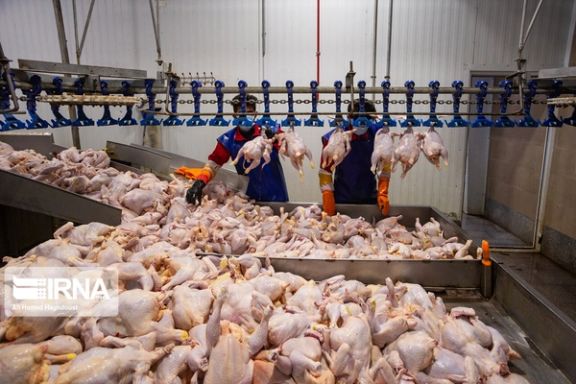
Amid Iran’s economic catastrophe, Iran is set to export 5,000 tons of poultry to Iraq in the next eight days as Iranians can no longer afford basic food items.
According to Ali Ebrahimi, the CEO of the National Union of Poultry Producers, on Thursday, poultry production has overtaken consumption over the past two months, resulting in a surplus of supply over demand and lowering the price of the commodity.
The decline in price has hurt poultry farmers who have been struggling to export their products, Ebrahimi said, further adding that about 1,100 tons of poultry were sold last year to Iraq, which is the main destination for Iranian frozen poultry exports.
Reports received earlier in March by Iran International indicate a significant drop in people’s purchasing power and the elimination of many food items in their diets, including red meat, chicken, and fish.
Canned tuna prices have jumped by 113% in the past 12 months and prices for red meat by 100%.
In more than a decade, Iran's economic growth has averaged zero. The situation has been further exacerbated since the US withdrawal from the JCPOA nuclear deal in 2018.
Over the past six years, the rial, Iran’s national currency, has fallen 15-fold, fueling inflation and plunging millions of citizens into poverty.
Eqtesad 24 news website reported in February that almost one in every three Iranians is currently living below the poverty line as a result of soaring inflation.
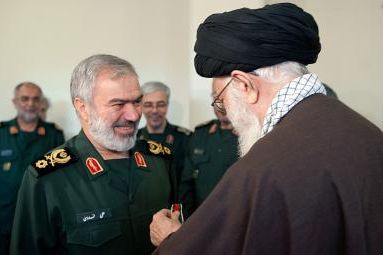
The IRGC looks set to enter Iran's auto industry and is awaiting approval from the country's supreme leader as the state security forces expand its economic dominance in Iran.
Ali Fadavi, the deputy commander of the IRGC, made the announcement Thursday, set to anger many as the government's web of corruption continues to spread across the country's ailing economy. The IRGC is inextricably linked to fields unrelated to its remit, the country's de facto ruling body.
The IRGC’s engagement in economic activities in Iran is not unprecedented. In recent years, the government has started giving oil to the IRGC as a way to boost its budgets.
The notorious military organization involved in the brutal crackdowns on protesters in recent years, including killing over 500 in the wake of the 2022 uprising, has also been involved in trading some of the most important food items, including rice, sugar and tea. It has also been provided with exclusive access to several Iranian ports in order to carry out its undercover projects.
Iran’s auto industry is almost entirely dominated by the government which, following Khamenei’s orders, has imposed exorbitant taxes on the importation of quality foreign-made cars under the pretext of supporting domestic production. The controversial policy has made it impossible for the average pocket in Iran to buy foreign-made mid-priced cars.
There are about a dozen state-and quasi-state-owned automakers in Iran, of which two – Iran Khodro and Saipa - account for 94% of the total domestic production, with nearly 1,500,000 units of light and heavy vehicles produced annually, mostly sub-standard and older foreign models.
According to Farhad Ehteshamzad, the head of Iran Auto Importers Association, the country’s state-owned carmakers are incurring daily losses of $3.7 million, totaling over one billion dollars annually. Meanwhile, Umud Shokri, an energy geopolitics analyst, attributed the heavy losses of Iran’s carmakers to sanctions, technological gaps and mismanagement.
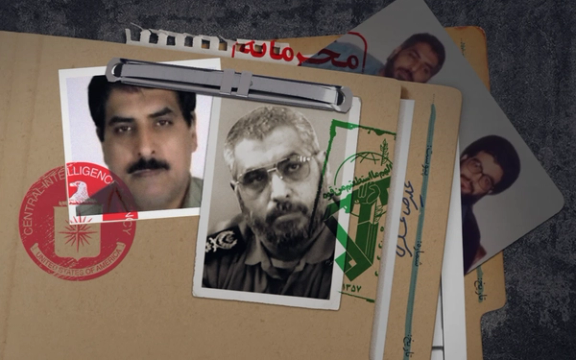
Ali-Reza Asgari, the once distinguished Iranian Major General in the regime’s powerful paramilitary force, has been found living in the United States under a new identity, according to exclusive findings by Iran International.
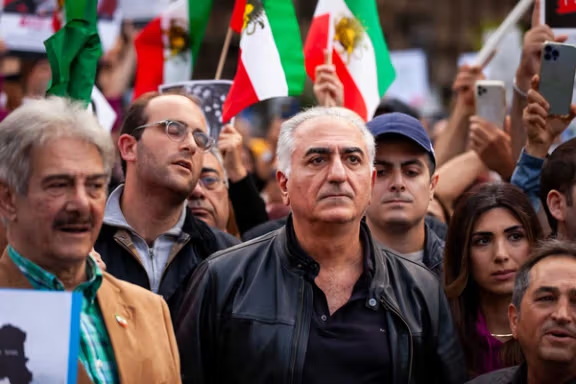
As much of the global media scrambled to decode where Iranians stand on the escalating tension between Tehran and Jerusalem – Iran’s exiled Prince Reza Pahlavi appeared to be everywhere.
In what can only be described as a kind of media tour, Pahlavi embarked on at least 13 interviews in the span of just 11 days.
From left-wing to right-wing US cable news, German tabloids, UK broadcasters, Russian independent news stations and an Indian news channel – Pahlavi spoke staunchly against the Iranian government’s attack on Israel.
Pahlavi, whose father was the last monarch before the Islamic Revolution in 1979, arguably stood out as the most prominent Iranian figure speaking to the media about the plight and sentiments of Iranians today.
“I think the time has come for the world to make a final decision on the subject,” Pahlavi said on SKY News.
That was the overarching narrative, woven through the plethora of interviews Pahlavi gave this month: The downfall of the Islamic Republic is the only way to bring peace and stability to the Middle East, but, what’s missing is a final decision – or a reset – by the Western world to commit to regime change.
He was asked by multiple anchors whether he sees cracks or weakness in the regime, enabling its downfall, to which he quickly stated “of course”.
Pahlavi further maintained that diplomacy with Iran has failed – and that Western leaders are clinging to futile hope that the regime may change its behavior.
“This is basically kicking the can down the road… Appeasement has failed. Any continuation of the same, frankly, is insanity,” he told The Telegraph.

Pahlavi refused to name specific Western leaders – but had harsh words for the Obama and Biden administrations in other interviews.
Speaking to Indian news anchor Arnab Goswami, Pahlavi said, "If you take the period of time when there was stronger leadership in this country during the Trump administration...between the Obama administration and Biden administration, the number of executions in Iran was half it is today. Why? Because that kind of leadership and strength basically makes such regimes think twice before they do anything – whether it’s at home or abroad.”
But, Pahlavi made sure to disavow any notion that a foreign military attack or intervention would be necessary to help the Iranian people “liberate themselves.”
“Fighting the tentacles is no longer a solution. You have to go for the eye of the octopus, and the eye of the Octopus is Tehran…I am not calling for any foreign military attack or intervention…the natural army in place are the people of Iran," he told Goswami.
Pahlavi emphasized that the Iranian people hold their own destiny in their hands – but, that it would be much easier with the support of the West.
In his step-by-step plan to achieve a revolution, what do Iranian people need, according to Pahlavi?
Internet access, funding to launch labor strikes, and a clear exit strategy for government or military personnel without criminal records, ensuring their place in a future Iran.
Perhaps boldly, Indian anchor Goswami also asked Pahlavi why the Iranian people should believe that he has their best interest in mind.
“That’s very easy to prove. All you have to do is to monitor Iranian social media. All you have to do is look at various polls that have been done about what level of support or popularity I have in Iran,“ Pahlavi said.
Indeed, Pahlavi is often affectionately called Crown Prince by his fervent followers and monarchists who see him as Iran’s future leader, though he himself has often said he is not running for any political office.
“I’m not running for any office or position,” he told the New York Post, “for me, the finish line is the day people go to the polls and finally participate in a referendum to decide their fate.”
While maintaining that he is one of the few – if not the only person – the Iranian people say they can trust, Pahlavi said their faith in him amounts to a political capital that he’s spending on the liberation of his fellow compatriots.
As Pahlavi spoke about his “two-pronged” approach of maximizing sanctions on Tehran, while simultaneously supporting the Iranian people – BBC’s Chief Correspondent Lyse Doucet threw him a curveball.
Doucet prodded that Pahlavi’s position on expanding sanctions puts him “at odds with other leading figures in the [Iranian] opposition” – citing the imprisoned Nobel-laureate Narges Mohammadi’s stance that sanctions “don’t work” and “add pain on millions of Iranians.”
“I totally disagree with that assessment. And the reason you need to, in fact pressure, is because when you ignore that the regime is going to benefit – not the people – then the only way to curtail the regime is, make it less capable to have access to funding,” Pahlavi answered quickly.
Along with a formal terrorist designation for the Islamic Revolutionary Guard Corps (IRGC) by the UK and EU, Pahlavi called for stronger leadership in the West – akin to Roosevelt and Churchill.
Pahlavi’s opponents offline, however, often lament that he is surrounded by extremists, that they don’t want another dictator for Iran – and that he is not entirely transparent about his own plans when it comes to the future of Iran.
So, what has Pahlavi said about his personal plans, if there is a revolution?
“I hope world leaders will finally decide to consider this issue very seriously and I stand ready to present to them our viewpoints, on behalf of my compatriots, of how they can best find a solution that is win-win, which is in the interest of the Iranian people, but also in their own interest,” Pahlavi told English broadcaster and anchor Piers Morgan.
On FOX News, Pahlavi said in the event of regime change, he is there to “provide that kind of interim leadership within a constitutional process that would let the Iranian people to finally decide what they want.”
“Regardless of what the Iranian people do, is it enough for the ultimate change? I always tell my own compatriots, we have to rely on ourselves and nobody else. But, it would be so much easier for us to succeed if we had the actual support from the free world,” Pahlavi told Russian independent news outlet Rain.